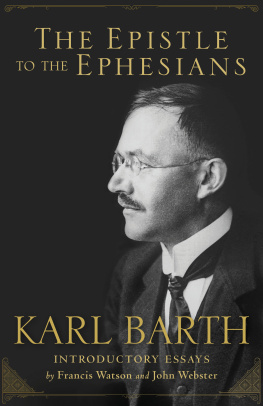I T H APPENS AMONG P EOPLE
WYSE Series in Social Anthropology
Editors:
James Laidlaw, William Wyse Professor of Social Anthropology, University of Cambridge, and Fellow of Kings College, Cambridge
Maryon McDonald, Fellow in Social Anthropology, Robinson College, University of Cambridge
Joel Robbins, Sigrid Rausing Professor of Social Anthropology, University of Cambridge, and Fellow of Trinity College, Cambridge
Social Anthropology is a vibrant discipline of relevance to many areaseconomics, politics, religion, science, business, humanities, health, and public policy. This series, published in association with the Cambridge Department of Social Anthropology but open to all scholars, focuses on key interventions in Social Anthropology, based on innovative theory and research of relevance to contemporary social issues and debates.
Volume 8
It Happens among People: Resonances and Extensions of the Work of Fredrik Barth
Edited by Keping Wu and Robert P. Weller
Volume 7
Indeterminacy: Waste, Value, and the Imagination
Edited by Catherine Alexander and Andrew Sanchez
Volume 6
After Difference: Queer Activism in Italy and Anthropological Theory
Paolo Heywood
Volume 5
Moral Engines: Exploring the Ethical Drives in Human Life
Edited by Cheryl Mattingly, Rasmus Dyring, Maria Louw, and Thomas Schwarz Wentzer
Volume 4
The Patient Multiple: An Ethnography of Healthcare and Decision-Making in Bhutan
Jonathan Taee
Volume 3
The State Were In: Reflecting on Democracys Troubles
Edited by Joanna Cook, Nicholas J. Long, and Henrietta L. Moore
Volume 2
The Social Life of Achievement
Edited by Nicholas J. Long and Henrietta L. Moore
Volume 1
Sociality: New Directions
Edited by Nicholas J. Long and Henrietta L. Moore
I T H APPENS AMONG P EOPLE
Resonances and Extensions of the Work of Fredrik Barth
Edited by
Keping Wu and Robert P. Weller
First published in 2020 by
Berghahn Books
www.berghahnbooks.com
2020 Keping Wu and Robert P. Weller
All rights reserved. Except for the quotation of short passages for the purposes of criticism and review, no part of this book may be reproduced in any form or by any means, electronic or mechanical, including photocopying, recording, or any information storage and retrieval system now known or to be invented, without written permission of the publisher.
Library of Congress Cataloging-in-Publication Data
A C.I.P. cataloging record is available from the Library of Congress
Library of Congress Cataloging in Publication Control Number: 2019037952
British Library Cataloguing in Publication Data
A catalogue record for this book is available from the British Library
ISBN 978-1-78920-428-5 hardback
ISBN 978-1-78920-537-4 paperback
ISBN 978-1-78920-429-2 ebook
Contents
R OBERT P. W ELLER AND K EPING W U
U NNI W IKAN
M ICHAEL H ERZFELD
R OBERT P. W ELLER
K EPING W U
T HOMAS B ARFIELD
G UNNAR H AALAND
C HARLES L INDHOLM
J OEL R OBBINS
K E F AN
C HEE -B ENG T AN
U LF H ANNERZ
Figures
Introduction
Robert P. Weller and Keping Wu
The passing of Fredrik Barth marked the end of an era in anthropology. Nevertheless, his contributions also promise new beginnings. As his students and colleagues, we felt nothing could honor our debts to him more than an intellectual effort that brings attention to his relevance to anthropology today, rather than simply celebrating his legacy. This volume attempts to do that by offering chapters that expand on his work, sometimes argue with it, but always honor its humanist approach. In the process, the book may also serve as a summary of some of his main themes, and it may illustrate how much we owe him intellectually, but our main goal is neither intellectual biography nor commemoration. It is instead to pass on Barths humanistic tradition of knowledge, so it can live and evolve.
Such a process of continuous intellectual evolution characterized Barths own career as well. In the late 1970s, when Robert attended his graduate seminar at Johns Hopkins, Barth was already highly celebrated. This was above all because of his introductory essay in Ethnic Groups and Boundaries (1969), which had appeared a decade earlier. Though Barth repeatedly said that he was not an expert on ethnicity, this essay fundamentally shifted the way people conceptualize ethnicityfrom cultural stuff to the boundaries actors set out to maintain. However, instead of dwelling on his fame or reiterating his earlier ideas, it was clear that Barth at that time was wrestling with new issues, especially with the problem of how to understand a person as both a potentially creative individual and as a product of broader social processes. In retrospect, the period marked a fruitful point in his career as he extended his thinking about how social forms can be generated from a primary focus on individual transactions to a new concern with how ideas can come to be shared and passed down through what he called traditions of knowledge.
Barths next monograph thus moved not only to a brand-new field site, but also to a new interest in rituals and symbolic systems. Ritual and Knowledge among the Baktaman of New Guinea (1975) marked the beginning of what was to become his brand of the anthropology of knowledge. In the concluding essay of his edited volume Scale and Social Organization (1978), Barth wrote, What is required is a truly dynamic and empirically valid model of the entire process of cultural transmission and behavioral enactment, capable of showing how encounters both reflect and generate culture (Barth 1978: 272). This concern with the relationship between individual behaviors and the shared culture they both make and are part of was one of the central theoretical concerns of Barth throughout his career.
Almost two decades later, when Keping attended his graduate classes at Boston University, Barth had already published his final major monograph, Balinese Worlds (1993), in which he most clearly established his position on those issues. By the time Keping was working with him, Barths teaching focused more on the central importance of methodology than anything else. He taught the seminar on anthropological methods each year, and on alternate years he would teach a seminar on ethnicity or anthropology of knowledge. Even in those classes, however, methodshow one collects the data and what constitutes the material for analysiswere always the starting point of his discussion. In a way, theory and methodology were the same things for him. His methodological naturalism and insistence on the worms eye view about real people doing real things left a deep mark on all the students who were in his classroom in those years. His anthropology was humanistic in the broadest sense, since it requires us to consider how we behave as true humans, in the fullest and most complex sense of the term. One of the lessons all of us learned from him is that human social life is neither simply the product of individual calculations or of cultural categories; instead it happens among people at particular places and times.







